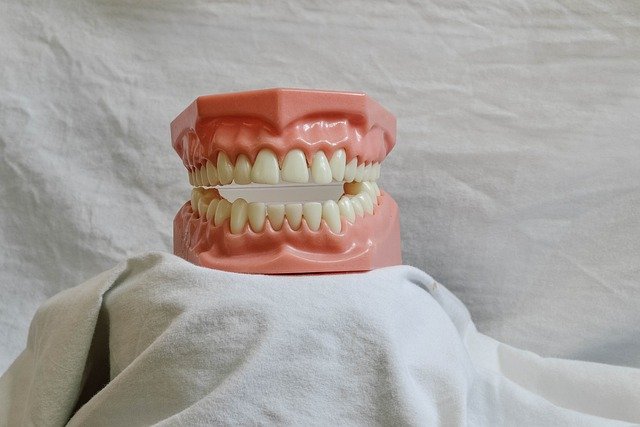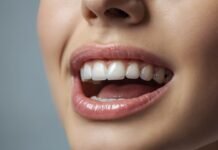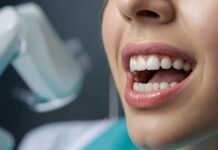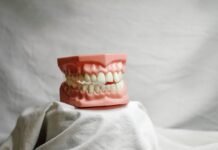Oral health is an important and often overlooked component of an older person’s general health and well-being. For many older patients, oral health can become an issue when arthritis or other neurological problems render them unable to brush or floss their teeth as effectively as they once did. If you are caring for a loved one, here are some common oral health issues the elderly face:
In order to prevent cavities, it’s important to understand what exactly causes cavities in the first place. In this post we’ll dive into some of the common causes of cavities and what you can do to prevent tooth decay.
It’s not just children who get tooth decay—oral decay is a common disease in people 65 and older. Ninety-two percent of seniors 65 and older have had dental caries in their permanent teeth, according to the National Institute of Dental and Craniofacial Research.
When you eat, the sugars and starches from your food are left on your teeth. Breads, cereals, milk, fruits, sweets, juices, and soda all contain either sugars, starches or both. The bacteria that naturally live in your mouth will feed on these leftover particles.
As the bacteria feeds, they create acids. These acids, combined with your saliva and the food particles in your mouth, create plaque. Plaque is a sticky, colorless (or pale yellow) film that sits on your teeth. Typically, plaque can be washed away with a toothbrush and proper dental care. But when left on your teeth for 12 to 24 hours, that plaque can turn into tartar. Tartar, also known as dental calculus, is a deposit that forms on your teeth when plaque isn’t removed. Tartar creates a strong bond to your teeth and usually has to be removed by a dentist. The best way to avoid going through this is to practice good dental hygiene techniques. Fortunately, there are a few simple ways you can help to prevent cavities.
First, reduce the amount of sugary foods and beverages that you eat and drink to keep the bacteria in your mouth from having something to feed on.
Next, make sure to brush and floss your teeth at least twice a day, preferable after every meal, to keep plaque from building in your mouth. To help achieve your oral health goals, it’s important to use a plaque removing toothpaste or dental gel.
Finally, it’s recommended to visit a dentist at least once every six months for an annual dental check-up. This ensures that your teeth are clear of tartar and any cavities that may have developed are properly taken care of.
Gum (periodontal) disease is an infection of the gums and surrounding tissues that hold teeth in place. While gum disease affects people of all ages, it typically becomes worse as people age. In its early stages, gum disease is painless, and most people have no idea that they have it. In more advanced cases, however, gum disease can cause sore gums and pain when chewing.
Gingivitis is a common type of gum disease (or periodontal disease). It’s characterized by gum irritation, inflammation, redness, or even bleeding. There are a few different factors that make a patient more likely to develop this type of gum disease, including tobacco and drug use, hormonal changes, genetics, diet, and age. However, it can often be at least partially attributed to poor oral hygiene. It mostly occurs when bacterial plaque (a naturally occurring biofilm) builds up on the teeth and surrounding gum line. This can subsequently irritate the gums and lead to the development of this condition. It’s important to note that gingivitis can eventually lead to more serious types of gum disease and even tooth loss — which means it’s essential to recognize and treat this condition as soon as possible.
Obstructive Sleep Apnea is a condition that causes an individual to stop breathing as many as thirty times an hour while asleep. Soft tissue in the throat area blocks the airway, causing snoring, gasping or choking as the individual stops breathing. Sometimes the individual will wake with the breathing interruptions. Often, they do not wake and can be unaware they are suffering from the condition.
In addition to extreme fatigue, OSA can cause other serious health problems if left untreated. An individual with OSA is four times as likely to suffer a stroke and three times as likely to develop heart disease. The National Commission on Sleep Disorders Research reports that more than 38,000 people die each year from cardiovascular issues related to sleep apnea. Common risk factors for OSA include smoking and being overweight.
In mild to moderate cases of OSA and sleep-related bruxism, an effective treatment option is an oral appliance such as a night guard. A night guard lightens tension in your facial muscles and helps reposition your jaw and tongue to prevent airway blockage while also preventing your teeth from grinding together.
Your dental provider can create a custom-fit night guard that will comfortably and safely treat OSA and sleep-related bruxism. Your provider will make a dental impression and mould, which are used to create a cured plastic or acrylic-based mouthpiece that fits over your teeth.
Dry mouth: Also called xerostomia, dry mouth is a common issue for a lot of seniors. Our friends at the Oral Cancer Foundation estimate that 20 percent of elderly people suffer from dry mouth, which means the reduced flow of saliva (saliva plays a crucial role in preventing tooth decay). Many seniors are on multiple medications for a variety of chronic illnesses or conditions. Common medications taken that may cause dry mouth are decongestants, antihistamines, blood pressure medications, pain pills, incontinence medications, antidepressants, diuretics, muscle relaxers, and Parkinson’s disease medications. To help counter this, we suggest drinking lots of fluids and limiting your intake of caffeine and alcohol. Also try:
Chew sugar-free gum. Chewing gum can help to stimulate the flow of saliva. However, even if chewing gum doesn’t motivate your salivary glands, the xylitol in sugar-free gum helps to fight back against bacteria in your mouth.
Limit how much caffeine you drink. Drinking coffee, tea, and energy drinks that are high in caffeine can make your mouth drier. Instead, reduce your caffeine intake and sip on water throughout the day.
Start using a plaque removing dental gel. Because your mouth isn’t producing the saliva you need to wash bacteria away from your teeth, dry mouth can cause increased plaque. Plaque starts to turn into tartar within 24 hours. This can make cavity pain worse and put you at risk for tooth decay and gum disease.
For many people, including our older generation, tooth sensitivity is a constant problem. Depending on the severity, tooth sensitivity can cause pain when eating, drinking, brushing, and even breathing. Multiple factors can contribute to tooth sensitivity including teeth grinding, brushing too hard, plaque, gum disease, and tooth decay.
To relieve tooth sensitivity try brushing gently with an electric toothbrush, Limit Acidic Foods and Beverages, use night guards to prevent grinding, use a toothpaste meant specifically for sensitive tooth and gum issues.
Although this is a complete list of dental health issue Seniors face, they are the most common ones, so be on the lookout for these when caring for your loved one.


























